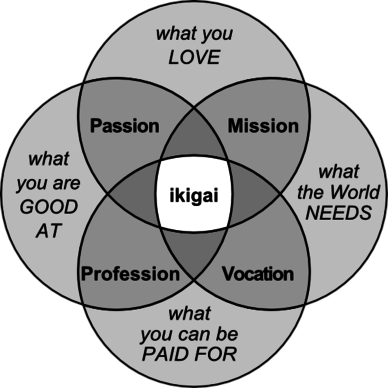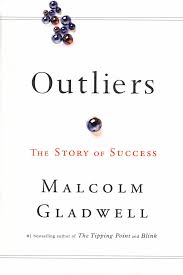We love reading from successful businessmen and visionaries. We want to learn how they did it, though we don’t always agree with their methodologies and values. Here’s another good read.
“Bay-zohs,”, not “Bee-zos.” Jeff is actually using his step-dad’s surname, and not that of his estranged biological father. He had a great mother who made sure that her gifted son will grow up to his potential, and beyond. With Steve Jobs being adopted and Jeff growing up with a step-father, is there something with these kids who grow up in a different familial set-up? Are they out to prove themselves? Or we’re just assuming too much
Ruthless, long-term visionary, customer-obsessed, dares to creates his own rules. His company, Amazon, is creating its own rules in online retail shopping, aiming to be the store for everything, at the lowest prices available. Always the customer in mind, sometimes to the detriment of other corporate and employee relationships. In the process, whether intentional or not, they end up crushing smaller mom-and-pop businesses, and taking head-on even the giant ones engaged in groceries, books, toys, publishing and whatever there is for sale. The everything store.
Bezos, Elon Musk, Jobs, they are in different fields, yet they all share the tenacity and fierceness, which makes working for them fast-paced and difficult. They are madly-driven with their visions, but such seeming insanity manifest in the kind of successful and disruptive companies they have built today. Is being an obsessed a**hole really among the secret ingredients?
What’s also intriguing in the past books we’ve read is the ease of doing start-ups in the US, which may not necessarily be the case here in PH. In the US, joining a start-up is pretty exciting, fast-paced and well, it wasn’t apparent in the books how easy/difficult it was to get registered, get licenses, find office spaces, file patents etc. Here in PH, it just seems a gargantuan task (and upfront expense) to get started, much more to hire employees.
Cheaper Prices, Customer-focused
Amazon is the shrewd influential middleman that the customer likes due to ease of shopping and affordable wide array of choices. Amazon had humble beginnings, but Bezos always had the customer in mind. Cheaper prices. The “single-click payment” patent. Faster delivery. Wide array of choices. He had the guts to make counter-intuitive decisions for the company (e.g. Amazon Prime, to the temporary dismay of the board), offering services at a short-term net loss to the company, at times cannibalizing other divisions of the company. Offering pioneering products that even engineers say are impossible or doesn’t make business sense. At that moment. But still it gets created by hook or by crook. And oh the insane programming levels that run their processes, price search and algorithms. Technology. Always for the benefit of the customer.
Long-term Vision and Strategy
But his vision and strategy were clear. Once they get more customers and build loyalty, customers will keep on shopping online via Amazon. Bezos will then grab market share from the usual brick and mortar stores. Once Amazon is big enough, it will have increasing bargaining power and leverage on suppliers and manufacturers who derive much of their sales through Amazon. Then Amazon will exert further pressure on their suppliers (sometimes ending up badly), get better deals, and offer lower prices again to customers. The cycle continues. If suppliers don’t cooperate, Amazon will show less of their products on the site, worse offer products from the competition. Offering ebooks for very low prices, and not even telling publishers how much ebooks will be sold, not until the Kindle was first launched. That’s blindsiding your business supply chain, just because, at that stage, they need you more than you need them. Tsk tsk.
Disruptive Change
Bezos is a big fan of Good to Great by Jim Collins, and Amazon has found their BHAG. Amazon is disruptive, and Bezos was aware that the internet was disruptive too. that it will change many things very soon, retail shopping included. That’s why he was willing to quit his day job and get started as soon as possible, with very long term visions in place. The concept that it’s better to cannibalize yourself, than let competition do it, is something worth remembering. Great companies (Kodak, WalMart, Barnes&Noble) were too late to acknowledge this (online shopping, digital pictures, ebooks), much less act on it. They were so big and comfortable with their business models that they dared not evolve. Little they know that the internet age moves at a dizzying exponential pace, and it will impact them adversely. Embrace change!

Predator
Amazon successfully branched into selling almost everything, even cloud and server space for companies, schools, etc, but the journey to including new products wasn’t smooth and easy. At times, Amazon patiently waited on the sidelines, allowing suppliers and even third-party unauthorized resellers to sell various items. Once Amazon has learned the tricks of the trade, it will sweep down and buy the companies that can further enhance its product line up. It’s either buy the suppliers, or buy the competition and compete with existing sellers in Amazon. Like a predator patiently watching its prey. No loyalty to business partners, just to customers.
Here are some highlighted quotes from the book The Everything Store, Jeff Bezos and the Age of Amazon, by Brad Stone. From these we can learn nuggets of wisdom that we can apply to our own businesses. Happy reading!
Bezos is a micromanager with a limitless spring of new ideas, and he reacts harshly to efforts that don’t meet his rigorous standards.
PowerPoint decks or slide presentations are never used in meetings. Instead, employees are required to write six-page narratives laying out their points in prose, because Bezos believes doing so fosters critical thinking. For each new product, they craft their documents in the style of a press release. The goal is to frame a proposed initiative in the way a customer might hear about it for the first time.
We are genuinely customer-centric, we are genuinely long-term oriented and we genuinely like to invent. Most companies are not those things. They are focused on the competitor, rather than the customer. They want to work on things that will pay dividends in two or three years, and if they don’t work in two or three years they will move on to something else. And they prefer to be close-followers rather than inventors, because it’s safer. So if you want to capture the truth about Amazon, that is why we are different. Very few companies have all of those three elements.
Five core values…: customer obsession, frugality, bias for action, ownership, and high bar for talent. Later Amazon would add a sixth value, innovation.
That either- or mentality, that if you are doing something good for customers it must be bad for shareholders, is very amateurish.
The new strategy would result in years of tension between various divisions, between Amazon and its suppliers, and between industry trade groups and the company. Bezos didn’t care about any of that, as long as it offered more choices to customers and, in the process, gave Amazon a greater selection of products.
Some Amazon employees currently advance the theory that Bezos, like Steve Jobs, Bill Gates, and Larry Ellison, lacks a certain degree of empathy and that as a result he treats workers like expendable resources without taking into account their contributions to the company. That in turn allows him to coldly allocate capital and manpower and make hyperrational business decisions while another executive might let emotion and personal relationships intrude.
The Innovator’s Dilemma, by Harvard professor Clayton Christensen… Christensen wrote that great companies fail not because they want to avoid disruptive change but because they are reluctant to embrace promising new markets that might undermine their traditional businesses and that do not appear to satisfy their short-term growth requirements.
As suppliers had learned over the past decade, no matter the category, Amazon wielded its market power neither lightly nor gracefully, employing every bit of leverage to improve its own margins and pass along savings to its customers. If the company didn’t get what it wanted, the reaction could be severe.
When a platform is self-service, even the improbable ideas can get tried, because there’s no expert gatekeeper ready to say ‘that will never work!’ And guess what—many of those improbable ideas do work, and society is the beneficiary of that diversity.
My Rating of the book: ★ ★ ★ ★ ★ ★ ★ ☆ ☆ ☆
Share this with a friend who’s into reading. Follow us on
Facebook,
Twitter and
Instagram. Subscribe to our free email base and get articles on good reads, business and entrepreneurship straight to your mailbox.
Join me in
Truly Rich Club and enjoy the many benefits too. Lastly, you may want to support our cause and
donate via Paypal.




















